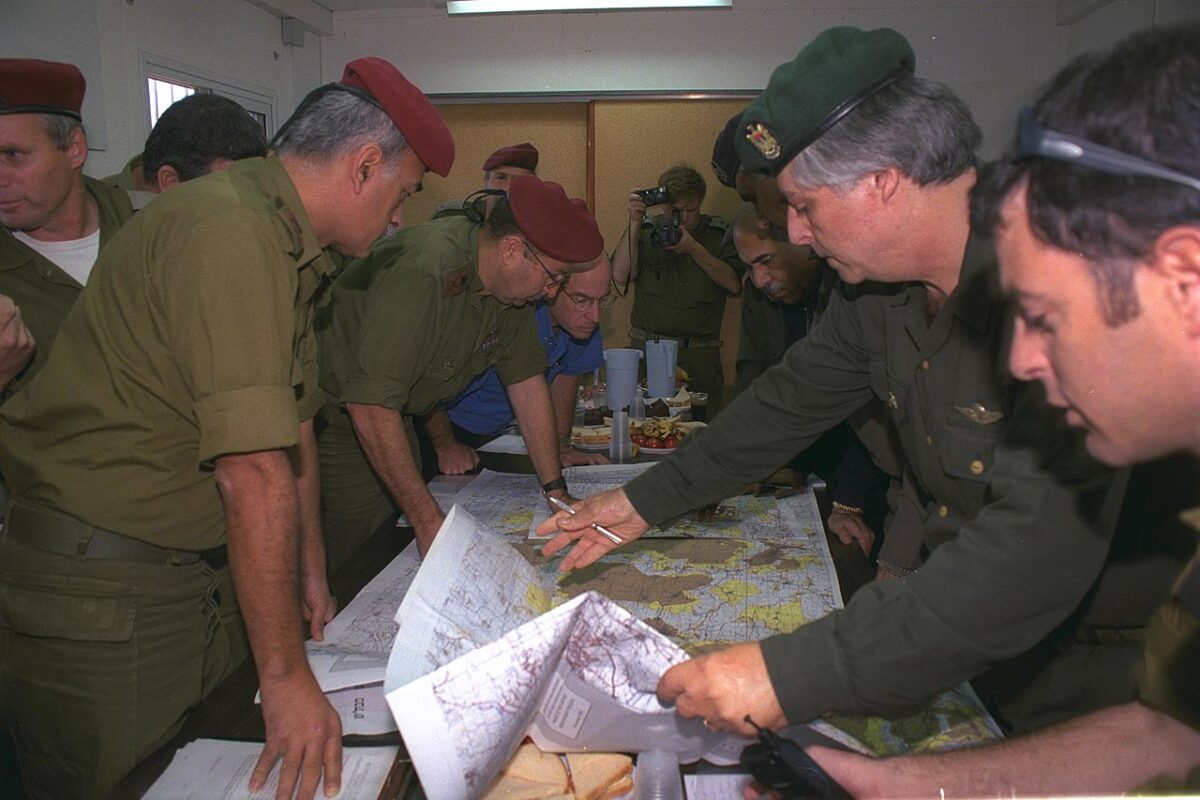Israel’s decision to annex the Jordan Valley later this year has drawn widespread condemnation, particularly in the Middle East.
The Arab League has said that annexation would be considered a “new war crime.” King Abdullah of Jordan has warned it would lead to a “massive conflict” with his country, while Jordanian Prime Minister Omar al-Razzaz has said it may undermine Jordan’s 1994 peace treaty with Israel.
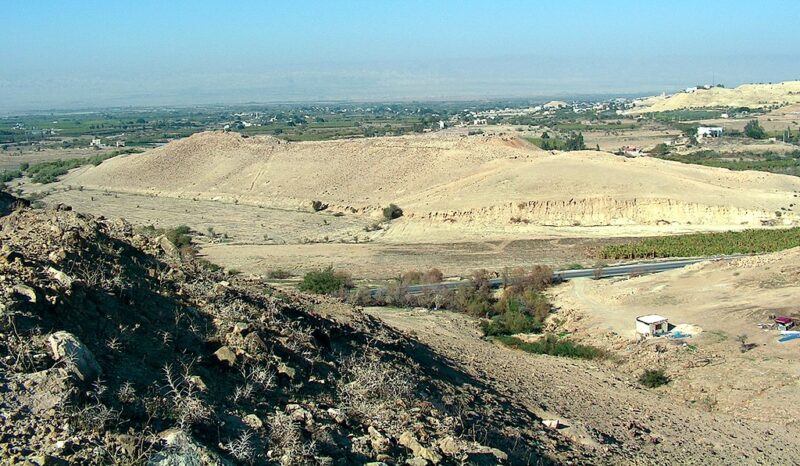
The European Union has asked Israel to reconsider its position. The United Nation’s Middle East envoy, Nikolay Mladenov, has asserted that annexation would represent “a most serious violation of international law.”
Closer to home, Israel’s military liaison to the Palestinian Authority, Major General Kamil Abu Rukan, has warned Israeli Defence Minister Benny Gantz that annexation is likely to trigger “a wave of terror attacks.”
The Palestinians, who would most likely be affected by Israeli Prime Minister Benjamin Netanyahu’s plan to extend Israel’s sovereignty over the Jordan Valley, have not only condemned it, but taken retaliatory steps in an attempt to block it.

On May 20, the president of the Palestinian Authority, Mahmoud Abbas, delivered a fiery speech in Ramallah in which he severed his commitments to the 1993 and 1995 Oslo peace accords.
Abbas cut off security cooperation with Israel, saying the Israeli government had “annulled” Oslo and all subsidiary agreements by virtue of its declared intention to annex the Jordan Valley, whose land mass comprises about 25 percent of the West Bank.
Palestinian officials let it be known that Abbas was serious and that his announcement was not just a mere threat. This could be true. According to reports, the Palestinians have in recent days redeployed to Area A of the West Bank, which is under full Palestinian control, and withdrawn forces from both Area B, which Israel fully controls, and Area C, which Israel’s administers.
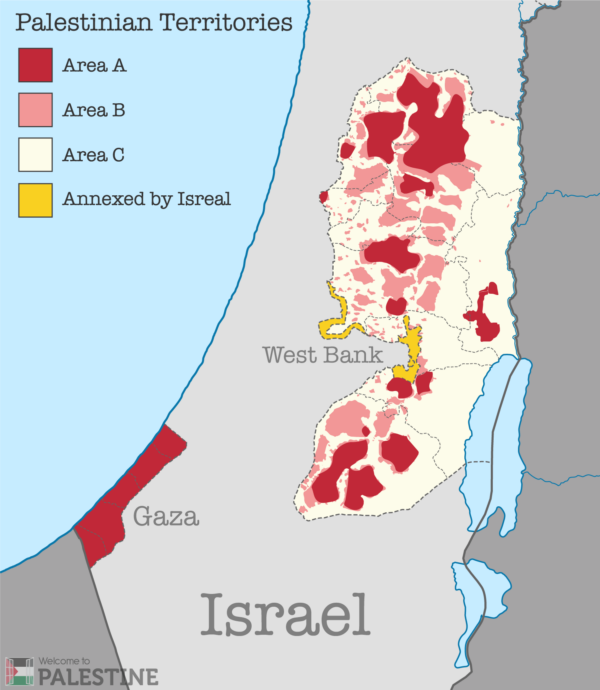
Explaining the rationale for Abbas’ announcement, Palestinian Authority Prime Minister Mohammad Shtayyeh said that Israel’s annexation policy constitutes “an existential threat to the Palestinian national project and an end to the two-state solution.”
Shtayyeh added an important caveat. The Palestinian Authority will preserve order and stability in the West Bank and suppress any attempt to ignite another popular uprising. Previous uprisings erupted in 1987 and 2000, claiming many lives on both sides, and were crushed by Israel.
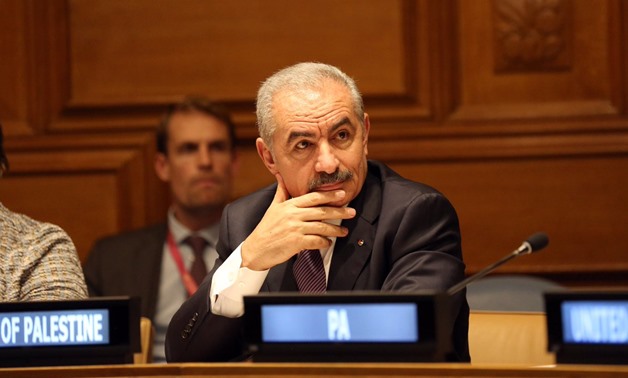
The Palestinian announcement could have serious consequences because security cooperation underpins Oslo and is clearly in Israel’s national interest. The Palestinian Authority has reportedly thwarted from 30 percent to 40 percent of terrorist attacks in the West Bank, where several hundred thousand Israeli settlers live.
The Palestinian Authority benefits from security coordination as well. Israel has smashed numerous attempts by Hamas — the Palestinian Authority’s bitter rival in the Gaza Strip — to establish cells in the West Bank.
If the Palestinian Authority carries out all its threats, which has yet to be determined, Israel would be forced to assume responsibility yet again for controlling the more than two million Palestinian inhabitants of the West Bank. It’s an onerous task that Israel would try to avoid at all cost.
Netanyahu has refrained from publicly commenting on these new developments on the assumption that he does not want to exacerbate an already troubling issue.
But a few days ago, he promised he will not miss an “historic opportunity” to apply Israeli sovereignty over the Jordan Valley and its network of authorized settlements and unauthorized outposts in the West Bank. U.S. President Donald Trump supports annexation and included this proviso in his Arab-Israeli peace proposal, which the Palestinians have roundly rejected.
Netanyahu may also be maintaining silence because he thinks the Palestinians are bluffing. Previous Palestinian threats to halt security coordination with the Israeli army and the Shin Bet domestic intelligence agency evaporated into thin air.
Three years ago, when Israel and the Palestinian Authority were embroiled in a major dispute over Israel’s placement of metal detectors at the entrance of the Temple Mount in East Jerusalem, Abbas called off security cooperation. But after this dispute was resolved, a high-ranking Palestinian Authority official acknowledged that Palestinian police forces had, in fact, left in place much of their coordination with Israel.
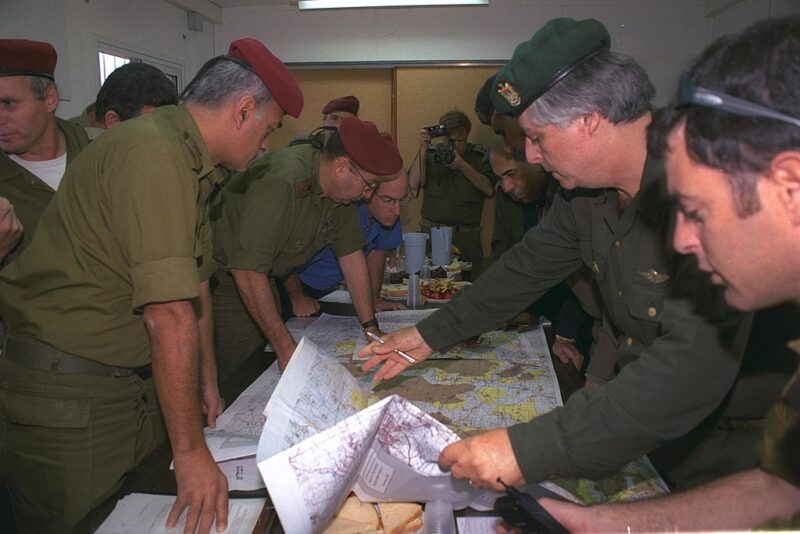
During periods of high tension, Israel’s security cooperation with the Palestinians has sometimes crumbled. In both intifadas, members of the Palestinian forces played a role in the fighting. This contributed to an uneasy perception among Israeli hardliners that arming the Palestinians was potentially dangerous and that the continued presence of the Israeli army in the West Bank was absolutely necessary.
At other times, Palestinian policemen or members of the intelligence services have conducted lone-wolf attacks against Israeli soldiers. One of these assailants was a close relative of chief Palestinian peace negotiator Saeb Erekat and a bodyguard of the Palestinian Authority attorney general.
In general, though, security cooperation has been an integral component of the Oslo agreement.
Under it, Israel is responsible for countering external threats and ensuring the security of its citizens, including those living in the West Bank.
Oslo called for the creation of “a strong police force” to guarantee public order and internal security for Palestinians. Today, nearly 50 percent of public sector employees in the Palestinian Authority work in the security sector, which accounts for upwards of 45 percent of its budget.
The majority of Palestinians oppose or are ill at ease with security cooperation, likening it to collaboration with the enemy and condemning it as a perpetuation of the Israeli occupation. Palestinian Authority officials, however, have argued that it boosts Israel’s confidence in the Palestinians and thereby neutralizes an Israeli argument against Palestinian statehood.
In practice, this argument is problematic because the current Israeli government opposes a contiguous Palestinian state.
The apparent breakdown of security cooperation between Israel and the Palestinians comes on the heels of a decision by the Palestinian Authority in 2019 to separate its economy from that of Israel.
Mohammed Mustafa, Abbas’ economic adviser, said that Palestinian economic dependence on Israel has weakened the Palestinian Authority. At present, 70 percent of its imports come from Israel.
The Palestinians seek “a more balanced agreement” that guarantees Palestinian interests and creates “a proper environment” for the growth of its economy, he said.
